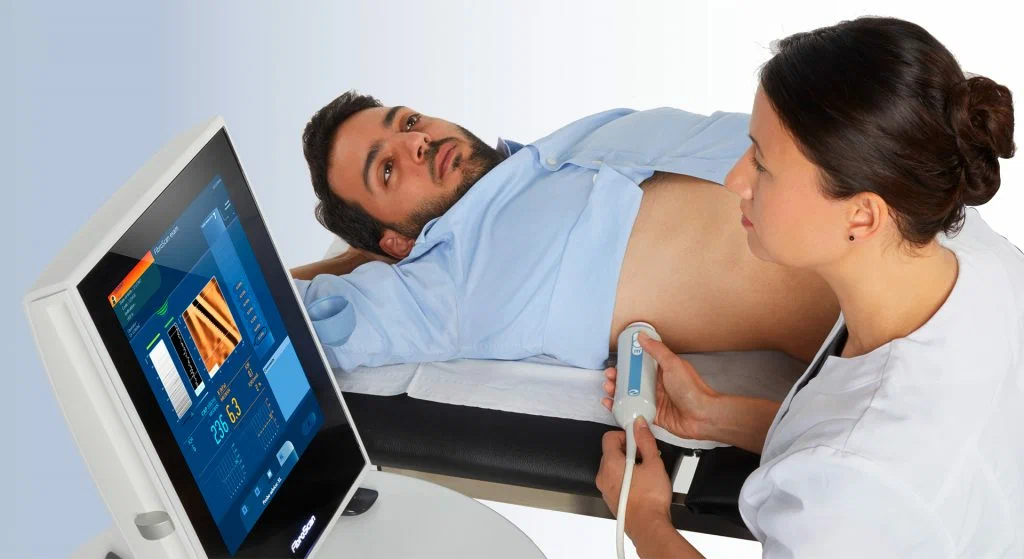
FibroScan is a modern, non-invasive diagnostic test used to assess the health of your liver. It helps measure liver stiffness and fat content, which indicate the presence of conditions such as fatty liver, fibrosis, or cirrhosis. Unlike a traditional liver biopsy, FibroScan is quick, painless, and does not require needles or anesthesia.

During the test, a small handheld device is placed on the skin over the liver area. It sends painless vibrations or sound waves through the liver tissue. These waves measure how stiff or fatty the liver is — and within a few minutes, your doctor receives an accurate report of your liver condition.
Dr. Piyush Gupta, one of the leading gastroenterologists in North Delhi, specializes in advanced liver diagnostics and non-invasive procedures. With expertise in FibroScan technology, he ensures accurate diagnosis, timely treatment, and personalized care for every patient.
FibroScan is a safe, fast, and reliable method for assessing liver health. It allows early detection of fibrosis and fatty liver, helping doctors prevent progression to cirrhosis or liver failure. By avoiding invasive biopsies, FibroScan has made liver disease monitoring much easier for patients and doctors alike. Regular screening with FibroScan, along with lifestyle changes, can significantly improve long-term liver health.
No, FibroScan is completely painless. It feels like an ultrasound scan.
The procedure usually takes 5–10 minutes, and results are available immediately.
Yes, patients are generally advised to fast for at least 2–3 hours before the test for accurate results.
In many cases, yes. FibroScan reduces the need for biopsy, but in very complex cases, a biopsy may still be required.
Anyone at risk of liver disease, such as patients with hepatitis, fatty liver disease, obesity, diabetes, or excessive alcohol use.